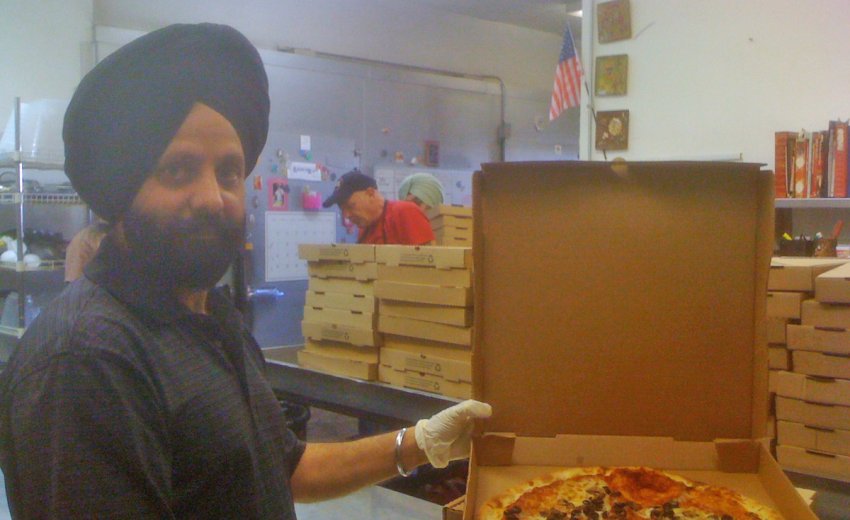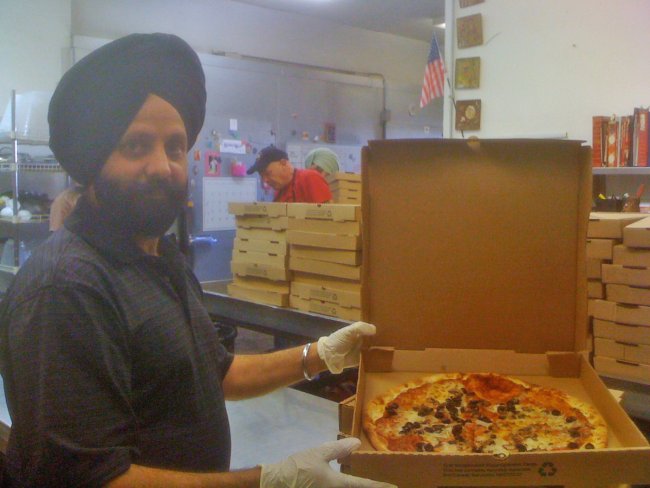The nephew of the murdered man stood before an audience of several thousand, and said, “I sure wish my uncle would come back and bring some peace, like he always used to.”
I cried.
This was at the first anniversary memorial for Balbir Singh Sodhi, a Sikh, who was murdered in Arizona in hate-backlash, four days after Sept. 11, 2001. His murderer had bragged of his intent to kill “the ragheads.”
When I viewed the video of the service, months later, I realized the adorable boy with his hair worn in a topknot had actually said, “I sure wish my uncle would come back and bring some pizza, like he always used to.”
I cried harder.
I was at the memorial because I had a long history of working against bias, and following Sept. 11, 2001 I had reached out to the families of innocent people, Hindu, Muslim and Sikh, who were murdered in hateful attacks.
In the years since, I’ve become consumed with how Islamophobia and xenophobia are pulsing through our culture, and the horrible impact upon innocent people.
On Monday, I just returned from an event at a local gurdwara, or Sikh temple, in the wake of the massacre in Wisconsin.
The community and the event comforted me. I’ve been so wrapped up in a daunting family crisis that I haven’t even yet seen news coverage of the attack on Sunday.
There was not an iota of bitterness evident in the congregation, or the many visitors of other faiths, there in solidarity. Instead there was the incredible sweetness I first encountered when, as an invited speaker for that memorial, my family and I were hosted by the family of Singh Sodhi’s brother, who ran out to greet us like long-lost relatives when we arrived hours late, after midnight, to their home, the day before the anniversary of their tragic loss.
We were strangers, for about one minute. Then we were embraced by two boys (one, the peace/pizza misser), their sister, mom and dad. Over the weekend, they gave us much more joy and comfort than I can possibly imagine we gave them.
In the years since, I have so many impressions from my journey.
How, scenes of that first sweet night in the Singh Sodhi’s family living room, under the portrait of the founding guru of Sikhism, are always on my mind when I exhort program participants or conference attendees to find ways to get into the “lives and living rooms” of those they assume to be “different.”
Memories of sitting behind the counter of a service station in Texas, where an innocent Hindu man was also murdered in the aftermath of Sept. 11, and where his widow necessarily picked up the heavy mantle of supporting her family, standing every day exactly where he had fallen in his own blood–with no memorial or “hallowed ground” to commemorate her loss.
Remembering the customers who recalled his extreme generosity; how they spoke of filling their tanks, promising to return and pay for the gas they couldn’t afford at the time. Remembering this widow, who on the anniversary eve of her husband’s murder, after a grueling workload, made homemade pizza (yes, pizza, again) to bring and serve to his customers who came all day to reminisce about his goodness.
Meeting the extraordinary young Muslim man who had been shot in the face and left for dead, by the same killer who murdered the Hindu station owner, as well as another man, in his post Sept. 11 shooting spree. Rais Bhuiyan made it his ardent mission to try to save his would-be murderer from execution. His attempt was reported world-wide. He did succeed in utterly transforming the virulent white supremacist who spoke out against hate, moments before he was lethally injected in Texas, last summer.
So when I hear or read pundits or politicians fomenting xenophobia or Islamophobia, I have a very clear idea of the “collateral damage” to innocents their agitating provokes. I take it very personally, as I did when entering the gurdwara earlier Monday evening, thinking about the newly created victims and their families, likely just as good and loving as the extraordinary people I’ve met before, and the hard journey of healing they must now embark upon.
The amazing thing is that they are probably more likely to face the path that lies before them with peace, or with pizza, than with thoughts of hatred in return for the hatred that befell them.

